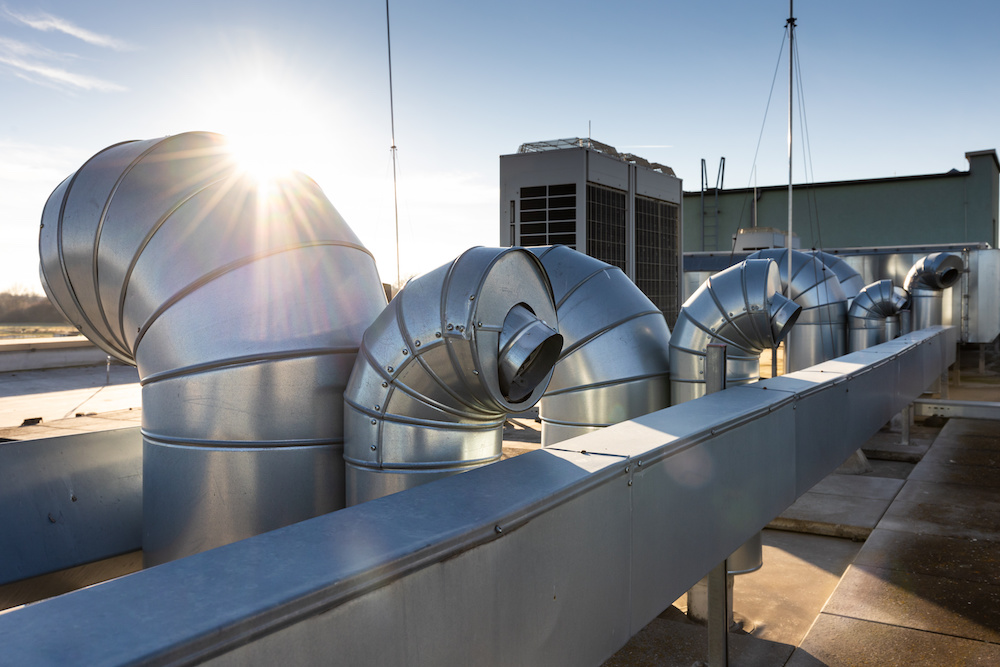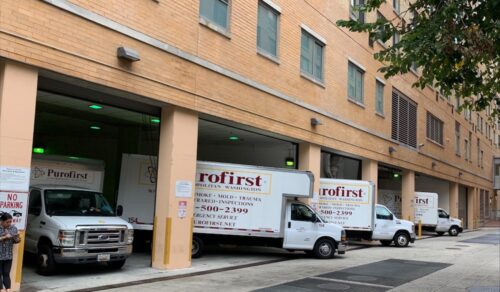The Importance of Ventilation in Buildings
Ventilation in buildings is a fundamental aspect of building design and operation, playing a crucial role in the overall well-being of occupants and the structure’s integrity. From enhancing indoor air quality to controlling moisture levels and promoting energy efficiency, the importance of ventilation cannot be overstated. Here are some key reasons highlighting the importance of ventilation in a building:
Why Ventilation in Buildings is Vital
- Air Quality Improvement.
- Health Benefits. Proper ventilation in buildings contributes to a healthier indoor environment, reducing the risk of respiratory problems, allergies, and irritation of the eyes, nose, and throat. It is pivotal in creating a space where occupants can thrive physically and mentally.
- Moisture Control. Effective ventilation is essential for controlling humidity levels within a building. By preventing the buildup of moisture, ventilation helps mitigate the risk of mold and mildew growth, which can have adverse effects on both the building materials and the health of its occupants.
- Temperature Regulation. Ventilation is instrumental in maintaining comfortable temperatures within a building. Proper air circulation ensures even distribution of conditioned air, preventing uncomfortable hot or cold spots and enhancing overall thermal comfort for occupants.
- Odor Control. Unpleasant odors can significantly impact the livability of indoor spaces. Ventilation in a building removes unwanted odors, creating a more pleasant and inviting environment for occupants.
- Prevention of Stale Air. Continuous ventilation in a building prevents the buildup of stagnant air, ensuring a constant supply of fresh air and promoting a more vibrant, livable indoor atmosphere.
 Ventilation in a building is a key part of its design and function.
Ventilation in a building is a key part of its design and function.
- Dilution of Indoor Pollutants.
- Energy Efficiency. Well-designed ventilation systems contribute to energy efficiency by ensuring the controlled exchange of indoor and outdoor air. This, in turn, can reduce the energy consumption of heating and cooling systems, promoting sustainability.
- Prevention of Condensation. In cold climates, proper ventilation helps prevent condensation on windows and walls, mitigating the risk of water damage and mold growth.
- Compliance with Building Codes.
- Occupant Productivity. Good indoor air quality resulting from effective ventilation has been linked to increased occupant productivity and reduced absenteeism in workplaces and educational institutions.
- Fire Safety. Ventilation systems play a crucial role in controlling the spread of smoke and gases in the event of a fire. This aids in facilitating safer evacuation routes for occupants and supporting firefighting efforts.
Ventilation is a critical aspect of building design and operation, impacting the health, comfort, and safety of occupants. It is essential for maintaining indoor air quality, controlling moisture levels, and ensuring the building’s sustainability and functionality. Building professionals should prioritize effective ventilation strategies during building design, construction, and ongoing maintenance to ensure a sustainable and functional indoor environment.
Have You Experienced Property Damage? Call Purofirst of Metropolitan Washington!
Unexpected property damage is a hassle that property owners encounter more often than they would like. When disaster strikes, calling the right people for help could make a world of difference. At Purofirst of Metropolitan Washington, we have provided trustworthy and reliable restoration services for years. Whether it’s water damage, fire damage, or a mold outbreak, our team of experts is always ready to help. We understand how distressing it can be to have your home or business damaged, so we work tirelessly to get your life back to normal. Our team is equipped with state-of-the-art equipment and cutting-edge techniques to make every restoration job successful. Please call us today at (800) 500-2399.




Leave a Reply